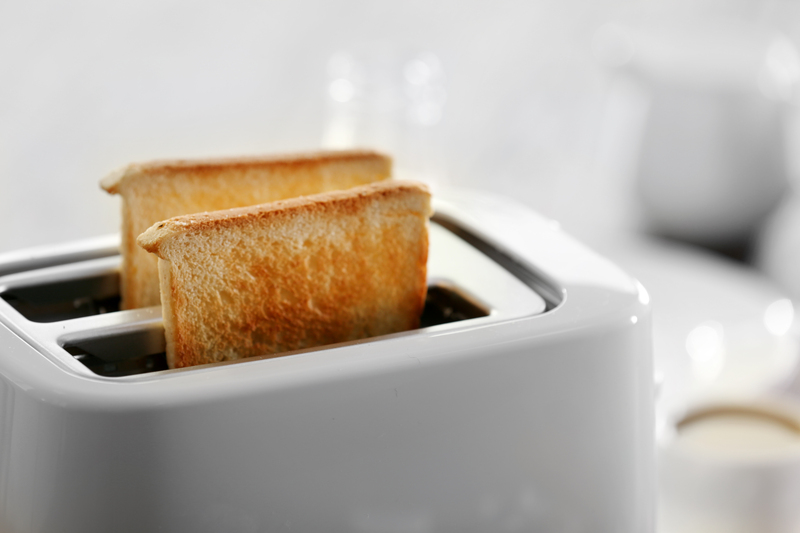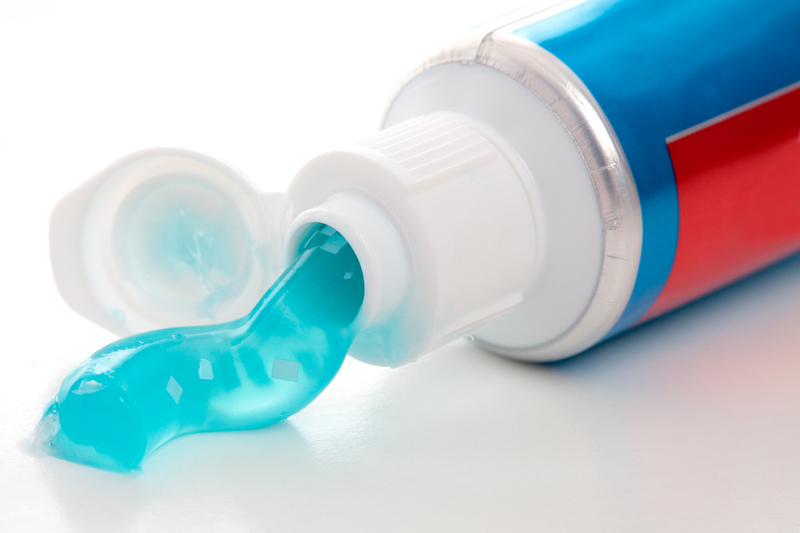Eliminate Damp Odors: Top Strategies for a Fresher Home
Posted on 13/09/2025
Eliminate Damp Odors: Top Strategies for a Fresher Home
Is your home plagued by persistent damp odors? Whether it's a musty basement, a moisture-laden bathroom, or a laundry room that never smells quite right, eliminating damp smells can seem like a never-ending battle. But fret not! With the right approach, you can enjoy a fresh-smelling and healthy living space. This comprehensive guide will explore the top strategies to banish damp odors for good, restoring freshness and comfort to every corner of your home.
Understanding Damp Smells in the Home
Before jumping into solutions, it's crucial to understand what causes these irritating, persistent damp odors. The musty aroma that often lingers in bathrooms, basements, closets, and even bedrooms is typically due to excess moisture.
- Mold and Mildew Growth: Where moisture lingers, mold and mildew quickly thrive. Their microscopic spores are often responsible for that distinctive musty odor.
- Poor Ventilation: A lack of air circulation traps humid air, allowing dampness -- and its odors -- to build up.
- Water Leaks: Dripping pipes and roof leaks can introduce moisture, fostering environments where unpleasant odors flourish.
- Condensation: In colder months, condensation forms on windows, pipes, and walls, encouraging mustiness.
If left unchecked, damp odors not only make your home uncomfortable but can also impact your health. Mold spores, for example, can aggravate allergies, asthma, and other respiratory conditions. That's why it's essential to eliminate damp odors at their source.

Top Strategies to Banish Damp Odors Effectively
Ready to reclaim your home's freshness? Here are proven strategies--ranging from quick fixes to long-term solutions--to eliminate musty, damp odors.
1. Identify and Address Moisture Sources
The first step to eliminate any musty odor is to pinpoint the source of the excess moisture.
- Inspect Plumbing: Check for leaks under sinks, behind toilets, and along basement pipes. Repair any drips or seepage promptly.
- Monitor Roofing and Windows: Examine the attic and window frames for leaks after heavy rain.
- Check Appliances: Washing machines, dishwashers, and refrigerators can all harbor unnoticed leaks.
Once you locate the culprit, fix it to prevent further moisture buildup--and the odors that come with it.
2. Improve Ventilation Throughout Your Home
Proper ventilation is key to eliminate damp odors and keep air fresh.
- Open Windows Regularly: Even cracking a window for 15-20 minutes a day can make a huge difference.
- Use Exhaust Fans: Turn on fans in bathrooms and kitchens during and after use.
- Install Air Vents: In areas like basements, attic, or closets, add or unblock vents to facilitate air movement.
- Add a Mechanical Ventilation System: For persistently damp homes, consider a heat-recovery ventilation (HRV) system.
Pro Tip: Use a ceiling or oscillating fan to keep air moving, which helps discourage mold and musty smells.
3. Invest in a Quality Dehumidifier
A dehumidifier can be a game-changer, especially in basements, laundry rooms, and bathrooms.
- Set humidity levels between 30-50%: This range is comfortable and inhospitable to mold growth.
- Empty and clean dehumidifier tanks regularly: Prevent bacterial and mold growth in the appliance itself.
- Choose the right capacity: For large, damp spaces, invest in a high-capacity model.
*Eliminating excess moisture is half the battle in eliminating persistent damp smells.*
4. Use Natural Odor Absorbers
Several household items are excellent at absorbing odors and excess moisture:
- Baking Soda: Place open containers in cupboards, closets, or even inside shoes to neutralize musty odors.
- Activated Charcoal: This powerhouse absorbs both moisture and smells. Use sachets or pouches in problematic areas.
- White Vinegar: Set out bowls of vinegar overnight in musty rooms. It absorbs and neutralizes odors.
- Coffee Grounds: Used coffee grounds act as natural deodorizers in small spaces.
These remedies are safe, chemical-free, and can be refreshed as needed.
5. Clean and Disinfect Surfaces Thoroughly
Many homeowners overlook cleaning hard-to-reach places where moisture--and thus mold and odors--lurk.
- Scrub floors, walls, and tiles: Use a mix of white vinegar and water or a special mold cleaner.
- Wipe down windows and window sills: Condensation and dust build up fast and feed musty smells.
- Clean behind appliances: Dust and dampness combine behind fridges and washing machines to create musty odors.
Don't forget to clean fabrics--curtains, rugs, and upholstered furniture also absorb dampness and odors.
6. Launder Soft Furnishings Regularly
Textiles attract and hold on to odors. Here's how to keep them fresh:
- Wash curtains and drapes often: Use hot water and a cup of white vinegar per load for best results.
- Clean area rugs and mats: Air dry thoroughly before placing them back in high-humidity areas.
- Vacuum upholstery: Use a HEPA filter vacuum to reduce dust and spores.
_A hint: Hang washable materials out in the sun; UV rays naturally kill mold spores and bacteria!_
7. Address Mold Growth Immediately
If you spot visible mold, take action quickly.
- For small patches: Scrub with hydrogen peroxide or white vinegar. Avoid using bleach, especially on porous surfaces--it often doesn't penetrate deeply enough.
- Call professionals for large infestations: Mold can damage structures and pose health risks if not eradicated by experts.
- Remove and replace moldy drywall or insulation: Severely affected materials should be discarded to completely eliminate musty odors and prevent recurrences.
8. Replace Air Filters and Clean HVAC Ducts
Your home's ventilation system can spread damp odors if it's not maintained.
- Change air filters every 2-3 months: Clogged filters circulate dust, moisture, and mold spores.
- Schedule HVAC maintenance: Have air ducts cleaned annually, particularly if you've suffered water damage or mold problems.
9. Dry Out Basement and Crawl Spaces
Basements and crawl spaces are notorious for harboring dampness. Use these tips:
- Seal foundation cracks: Prevent groundwater intrusion with professional-grade sealants.
- Install a sump pump if necessary: Especially in flood-prone areas.
- Use vapor barriers: Plastic sheeting on crawlspace floors will block moisture from the ground.
10. Monitor Indoor Humidity with a Hygrometer
A hygrometer is a small, affordable device that measures indoor humidity. Keep one in trouble areas--like basements, attics, and bathrooms--and adjust your dehumidifier or ventilation systems to stay between 30-50% humidity. Staying within this range significantly reduces musty odors and mold growth.
Special Tips For Persistent Damp Odors
What if you've tried everything and the damp odors linger? Sometimes, long-standing mustiness is due to structural issues or chronic moisture exposure.
- Check Insulation: Old or poor-quality insulation traps moisture. Replacing it can solve hidden odor problems.
- Check for Hidden Leaks: Pipes behind walls and under floors can leak undetected for years.
- Schedule a Home Inspection: Professionals can spot problems with your building envelope that you might miss.
Natural Remedies & DIY Solutions for Eliminating Damp Smells
If you prefer greener cleaning and deodorizing options, these DIY solutions will help you tackle damp odors without harsh chemicals.
Baking Soda & Essential Oil Sachets
Mix baking soda with 10-15 drops of your favorite essential oil (like lavender or tea tree). Place in breathable sachets and stash in closets, gym bags, or near laundry hampers. Both baking soda and essential oils act to absorb odors and fight bacterial growth.
Lemon Fresh Wipes
For a quick, natural clean, soak a clean cloth in a mixture of lemon juice and water. Wipe down surfaces, especially those prone to dampness like sinks, shower grout, and refrigerator drawers.
Homemade Vinegar Spray
Mix equal parts white vinegar and water in a spray bottle. Mist bathroom tiles, the base of toilets, and any area where moisture collects. Allow to dry--vinegar naturally kills mold spores and neutralizes odors.
Preventing Damp Odors: Long-Term Solutions
Eliminating musty smells is only half the job. Preventing their return is equally important. Implement these lifestyle and home maintenance tips for long-lasting freshness:
- Keep clutter to a minimum: Piles of boxes, old papers, and unused clothing trap moisture and odors.
- Maintain consistent cleaning schedules: Regular dusting, vacuuming, and wipe-downs help prevent mold-friendly environments.
- Air out rooms daily: Even in winter, a few minutes of fresh air exchange can work wonders.
- Address leaks and plumbing issues immediately: The faster you act, the less risk of chronic damp odors.
- Invest in waterproof flooring: Especially for bathrooms, kitchens, and entryways, waterproof options resist moisture intrusion.
- Store items off the floor: In basements and closets, use shelves to encourage air flow and prevent moisture buildup under stored goods.

Frequently Asked Questions: Getting Rid of Damp Odors
How do I remove damp smells from carpets and upholstery?
Sprinkle baking soda liberally over the surface. Let it sit for at least an hour (overnight for tougher odors), then vacuum thoroughly. For persistent odors, use a vinegar and water spray, taking care not to oversaturate the material.
Are air fresheners effective against musty odors?
Air fresheners and scented candles mask rather than eliminate odors. For lasting results, tackle the source by reducing moisture and cleaning the affected area.
Can houseplants help with damp odors?
Yes! Certain plants--like Peace Lily, Boston Fern, and Spider Plant--help regulate humidity and absorb airborne toxins. While they aren't a cure-all, they contribute to a fresher home environment.
Conclusion: Enjoy a Fresher, Healthier Home
With the right strategies, eliminating damp odors doesn't have to be a losing battle. Remember: Address moisture first, thoroughly clean affected areas, and maintain good air flow and humidity control. Combine these expert tips to create a fresh, welcoming home--and reclaim your comfort and peace of mind.
For more home improvement advice on keeping every room fresh and odor-free, stay tuned to our blog!




